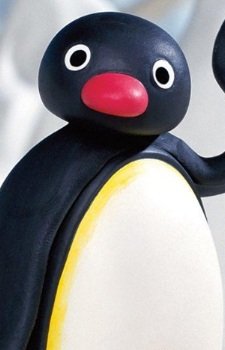Series & First Appearance
Pingu, the titular character of the series "Pingu," made his debut in the animated series created by Otmar Gutmann. The original series first aired in 1990, with the revival titled "Pingu in the City" premiering in 2018. Produced using stop-motion animation, the show has garnered a distinctive visual style, showcasing charming claymation characters and settings.
Profile at a Glance
Pingu is a young, anthropomorphized penguin who serves as the main protagonist across both "Pingu" and "Pingu in the City." He appears to be around 5-7 years old, fitting the role of a curious and adventurous child. Pingu is associated with the arctic community, engaging with various characters as part of his explorations. His signature ability lies in his communication, predominantly expressed through his iconic catchphrase, “Noot Noot,” which encapsulates his whimsical nature.
Personality & Motivations
Pingu embodies an energetic and playful personality, often finding himself in imaginative scenarios that require him to navigate challenges. He is characterized by curiosity and resourcefulness, with an underlying sense of mischief. Pingu demonstrates a strong desire for friendship and acceptance, often seeking to bond with others in his community. His catchphrase, “Noot Noot,” not only serves as a means of expression but has also become emblematic of his character, resonating with audiences worldwide.
Abilities / Powers
While Pingu does not possess superhuman abilities, his standout skills include exceptional problem-solving and adaptability. He often uses creative thinking to overcome obstacles, reflecting a child-like ingenuity. Pingu’s unorthodox communication style—expressing emotions through various sounds and gestures—plays a crucial role in his interactions, enabling him to connect with a range of characters without the need for a spoken language. There are no explicit combat abilities, as the series revolves around everyday adventures rather than conflict.
Major Story Arcs & Growth
Pingu’s journey is characterized by episodic narratives rather than traditional story arcs. Significant moments include his various misadventures, such as playing with friends, getting into trouble, or helping out in his community. Key episodes highlight his growth through social interactions, such as learning to share, understanding consequences, and navigating friendships. His evolution is subtle but impactful, showcasing a gradual maturity as he faces different aspects of childhood.
Notable Relationships
Pingu’s relationships play a vital role in shaping his character. His family, including his father and mother, provide a sense of belonging and security. Other characters like Pingu’s sister, Pinga, and his friends serve as confidants, facilitators of his adventures, and foils to his personality. Noteworthy interactions with characters like Robby the seal enrich the narrative, highlighting themes of camaraderie and conflict resolution.
Iconic Moments & Quotes
One of the most memorable scenes occurs in Season 1, Episode 4, when Pingu attempts to impress Pinga by building an igloo, leading to a comedic series of mishaps that ultimately teach him a lesson about perseverance. His repeated utterance of “Noot Noot” during these moments has led to a cultural phenomenon, becoming a recognizable meme symbolizing the charm of innocence.
Another impactful moment can be found in Season 2, Episode 3, where Pingu learns the importance of sharing his toys with others, showcasing emotional growth and reinforcing important socially responsible values.
Trivia & Behind-the-Scenes
Pingu enjoys a notable place in pop culture, particularly among children and adults who grew up with the series. The character’s design and narrative style are heavily influenced by traditional forms of storytelling, relying on visual humor and expressive claymation rather than dialogue.
In Japan, Pingu is voiced by the talented actor Ryouta Iwasaki, while in the English adaptations, actors such as Matt Stone have provided the character’s voice. The simplistic yet impactful animation style has been praised for its charm, contributing to Pingu’s longevity in the world of animation. The series has accumulated a loyal fanbase, with over 1,640 favorites recorded, evidencing Pingu’s enduring appeal.
Pingu’s reach extends beyond television; he has also appeared in various merchandise, video games, and even gained nostalgia-driven engagement through social media platforms where fans celebrate and share Pingu content, affirming his legacy as an animated icon.
In summary, Pingu serves as a figure of childhood innocence and curiosity, offering lessons on friendship, family, and adventure while charming audiences with his distinctive personality and whimsical charm.







